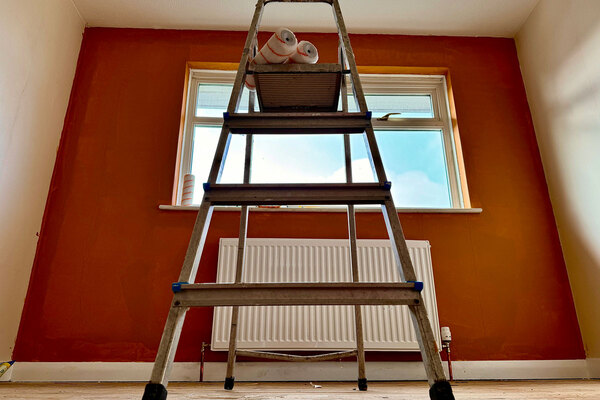You are viewing 1 of your 1 free articles
The Week in Housing: Aylesbury Estate – the end of ‘drop-in’ applications?
The Week in Housing is our weekly newsletter, rounding up the most important headlines for housing professionals. Sign up below to get it direct to your inbox every Friday

Good afternoon.
This week, a High Court judge ruled that the use of a “drop-in” application on the latest phase of a regeneration scheme by Notting Hill Genesis (NHG) went far beyond the original plans. Aysen Dennis won her claim against Southwark Council and NHG’s plans to regenerate part of the Aylesbury Estate, following a judicial review at the High Court.
In 2015, Southwark Council granted NHG planning permission to demolish and rebuild the 1970s estate according to a new £1.5bn masterplan. But Ms Dennis argued that a later amendment had made it much easier for the association to differ from the original masterplan.
The amendment allowed for an increase in the height of the tower blocks, the highest of which would reach 26 storeys, which the council argued was needed under its new local plan.
As large-scale estate regenerations often unfold in phases from outline planning permissions over time, campaigners have argued that developers can use drop-in applications to deviate from what was promised to residents.
The judge agreed, and the ruling could therefore have significant implications for both developers and local planning authorities going forward.
Given the number of developments of late that have been found to have structural safety concerns, it is to be welcomed that the Building Safety Regulator (BSR) will prioritise blocks still covered with Grenfell-style cladding and large-panel system (LPS) buildings as part of its new inspection regime.
LPS, a construction method mainly used in the 1960s and 1970s in which residential blocks were built using large prefabricated concrete slabs, is a particular concern for the BSR.
Minutes previously obtained by Inside Housing revealed that an expert group assembled to advise the government warned of major risks, including unstrengthened Ronan Point-style buildings, and said “the market is… prioritising profit over safety”.
The cost of remediating those buildings that need fire and building safety works can be substantial. As Metropolitan Thames Valley has found after it released a warning that its bottom line for the current financial year will be hit by £105m in provisions and write-downs relating to fire and building safety works.
On a similar note, Crest Nicholson has lowered its profit forecast again after it set aside £13m for a legal claim relating to fire damage at one of its schemes.
On construction product safety, housing minister Lee Rowley said the government is “committed” to tackling this issue, but refused to say when it will respond to a major post-Grenfell review published nine months ago.
Damp and mould has become a prominent issue for the sector, particularly following the conclusion of the inquest in November 2022 into the death of Awaab Ishak. Before the toddler died from prolonged exposure to mould in his Rochdale Boroughwide Housing (RBH) flat, his family’s pleas for help were ignored, while the association staff blamed them for the state of the property.
So I was left in a state of disbelief when the news broke that RBH had been forced to apologise to a family living in a mouldy home who was told they “breathe too much”.
Cultural changes around how the sector deals with this issue will obviously take time, but I don’t think the importance and frequency of moving air in and out of your lungs is something staff should really need updated guidelines on.
As a sign of the scale of the problem, one London council reported a 168% rise in the number of damp surveys it carried out in two years. Another council in the capital revealed it was only doing emergency repairs amid high demand and rising costs.
The wider financial picture of the sector still appears to be less than rosy after Moody’s warned that its outlook for housing associations’ “credit fundamentals” remains negative for this year due to high interest rates and inflation.
This was followed by three downgrades by the Regulator of Social Housing. A Birmingham landlord was downgraded for governance amid a regulatory review which found that a “significant number” of its homes had been reclassified as specialised supported housing.
Two more associations were downgraded over financial viability as the wider economic environment continues to affect the sector.
A number of judgements by the Housing Ombudsman included the case of one tenant left sleeping on the floor for at least three months as the landlord failed to respond to reports of spreading mould.
Meanwhile, the National Housing Federation warned that safe supported housing for vulnerable people is under threat as cash-strapped county councils plan to decommission homelessness services.
It comes as no surprise then that the latest government data showed that more than 15,000 households fleeing domestic abuse across England were denied support at safe accommodation sites in 2022-23 due to lack of capacity or an inability to meet the household’s needs.
A new analysis of tenant satisfaction measures (TSMs) by Housemark found that councils that manage their stock through an ALMO are performing better than local authorities that manage housing services directly.
As part of its new powers and focus on consumer regulation, the English regulator created 22 TSMs, which were finalised and published in September 2022. Data on TSMs started being collected on 1 April 2023 through tenant perception surveys and landlord data.
A separate annual survey by a resident support group in Wales found that satisfaction with the quality of repairs and maintenance work across the devolved nation had fallen.
This big news for Scotland came as the UK Treasury outlined plans for devolving powers to the country for the creation of its own Building Safety Levy.
In Northern Ireland, plans to reform the planning system in the region were welcomed by the Northern Ireland Federation of Housing Associations.
Back in England, higher interest rates continue to test buoyant housing markets as Taylor Wimpey reported that the number of affordable homes it sold last year fell nearly a fifth amid “difficult market conditions”.
At the same time, a senior executive at Vistry told Inside Housing that the firm has struck an increasing number of deals with for-profit providers as traditional housing associations cut back on their development plans.
At a difficult time politically for organisations supporting refugees and migrants, this interview with Reena Purchase on her new role as chair of the African Refugee Housing Action Group is well worth a read.
Finally, Hyde commissioned some interesting research this week. It revealed that six in 10 MPs agree social housing providers need more funding from the government.
I’m pretty sure I speak for everyone in the sector when I say: “Show me the money.”
Have a good weekend.
Stephen Delahunty, news editor, Inside Housing
Say hello: stephen.delahunty@insidehousing.co.uk
Editor’s picks: five stories you may have missed
Council plans to buy homelessness shelter from housing association
Giant landlord Riverside names new chief executive
London council ‘working with residents’ after claims it made eviction threats over energy bills
Khan accuses Gove of ‘desperate political stunt’ in row over London Plan review
RSH reveals small fee increase for first quarter ahead of long-term plan to double costs
Sign up for our Week in Housing newsletter
Already have an account? Click here to manage your newsletters









